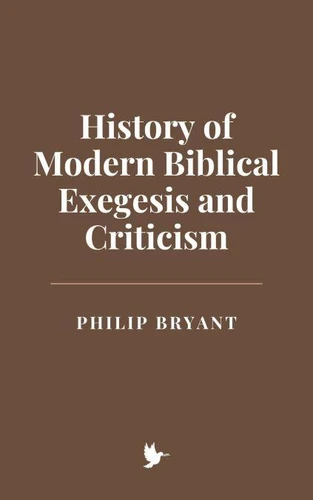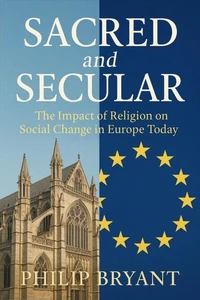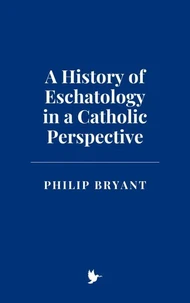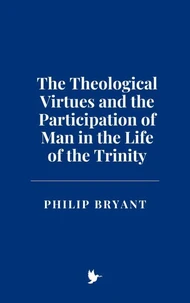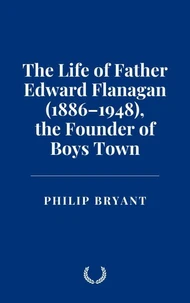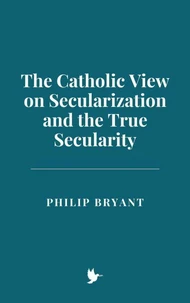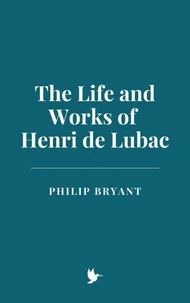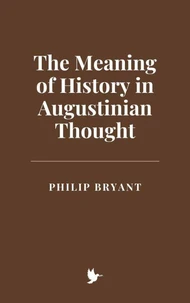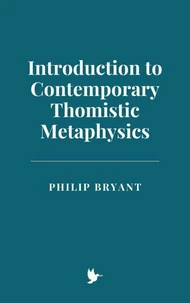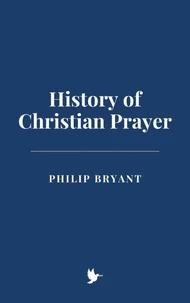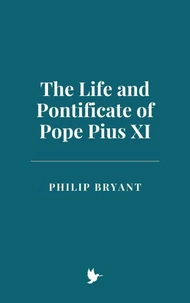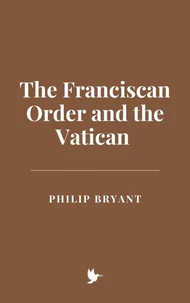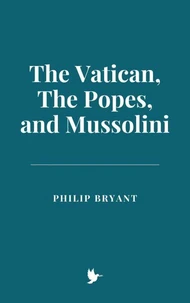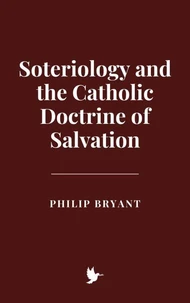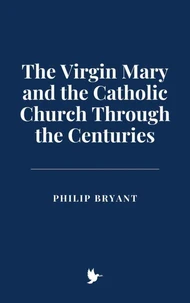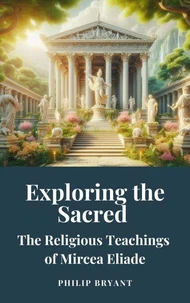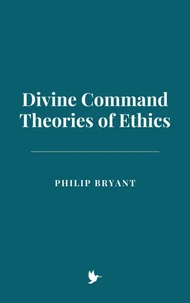History of Modern Biblical Exegesis and Criticism
Par :Formats :
Disponible dans votre compte client Decitre ou Furet du Nord dès validation de votre commande. Le format ePub est :
- Compatible avec une lecture sur My Vivlio (smartphone, tablette, ordinateur)
- Compatible avec une lecture sur liseuses Vivlio
- Pour les liseuses autres que Vivlio, vous devez utiliser le logiciel Adobe Digital Edition. Non compatible avec la lecture sur les liseuses Kindle, Remarkable et Sony
 , qui est-ce ?
, qui est-ce ?Notre partenaire de plateforme de lecture numérique où vous retrouverez l'ensemble de vos ebooks gratuitement
Pour en savoir plus sur nos ebooks, consultez notre aide en ligne ici
- FormatePub
- ISBN8227851611
- EAN9798227851611
- Date de parution18/11/2024
- Protection num.pas de protection
- Infos supplémentairesepub
- ÉditeurBig Dog Books, LLC
Résumé
This study explores the evolution of Biblical exegesis and criticism from the Renaissance to the mid-20th century, tracing the interplay between historical, theological, literary, and cultural approaches. Over twenty chapters, the work examines how the Bible, initially approached as a sacred and authoritative text, came to be studied through increasingly multidisciplinary lenses, shaped by shifts in intellectual, social, and scientific thought.
Beginning with the Renaissance humanists' focus on philology and original languages, the narrative moves through the Reformation's emphasis on sola scriptura and the Counter-Reformation's defense of tradition. The rise of rationalism in the Enlightenment challenged traditional doctrines, paving the way for historical criticism, source criticism, and the documentary hypothesis in the 19th century. These methods underscored the Bible's historical context and its composition as a complex and multifaceted text.
The 20th century brought new dimensions to Biblical studies, from the existential theology of Rudolf Bultmann to the literary analysis of Robert Alter and James Kugel. Interfaith dialogue enriched understanding, fostering engagement with Jewish, Islamic, and comparative traditions, while archaeology and the discovery of the Dead Sea Scrolls illuminated the Bible's cultural and historical backdrop.
Meanwhile, challenges from science, philosophy, and modernity prompted theologians like Karl Barth and Reinhold Niebuhr to develop frameworks that bridged faith and reason. Throughout, the Bible is revealed as a dynamic text-historically situated yet theologically enduring, literary in its artistry yet spiritually transformative. By examining its interpretation across centuries, this study highlights the Bible's capacity to address universal human concerns while remaining rooted in its particular historical and cultural contexts.
This legacy continues to inspire both scholarly inquiry and personal reflection, ensuring the Bible's relevance in a world of constant change.
Beginning with the Renaissance humanists' focus on philology and original languages, the narrative moves through the Reformation's emphasis on sola scriptura and the Counter-Reformation's defense of tradition. The rise of rationalism in the Enlightenment challenged traditional doctrines, paving the way for historical criticism, source criticism, and the documentary hypothesis in the 19th century. These methods underscored the Bible's historical context and its composition as a complex and multifaceted text.
The 20th century brought new dimensions to Biblical studies, from the existential theology of Rudolf Bultmann to the literary analysis of Robert Alter and James Kugel. Interfaith dialogue enriched understanding, fostering engagement with Jewish, Islamic, and comparative traditions, while archaeology and the discovery of the Dead Sea Scrolls illuminated the Bible's cultural and historical backdrop.
Meanwhile, challenges from science, philosophy, and modernity prompted theologians like Karl Barth and Reinhold Niebuhr to develop frameworks that bridged faith and reason. Throughout, the Bible is revealed as a dynamic text-historically situated yet theologically enduring, literary in its artistry yet spiritually transformative. By examining its interpretation across centuries, this study highlights the Bible's capacity to address universal human concerns while remaining rooted in its particular historical and cultural contexts.
This legacy continues to inspire both scholarly inquiry and personal reflection, ensuring the Bible's relevance in a world of constant change.
This study explores the evolution of Biblical exegesis and criticism from the Renaissance to the mid-20th century, tracing the interplay between historical, theological, literary, and cultural approaches. Over twenty chapters, the work examines how the Bible, initially approached as a sacred and authoritative text, came to be studied through increasingly multidisciplinary lenses, shaped by shifts in intellectual, social, and scientific thought.
Beginning with the Renaissance humanists' focus on philology and original languages, the narrative moves through the Reformation's emphasis on sola scriptura and the Counter-Reformation's defense of tradition. The rise of rationalism in the Enlightenment challenged traditional doctrines, paving the way for historical criticism, source criticism, and the documentary hypothesis in the 19th century. These methods underscored the Bible's historical context and its composition as a complex and multifaceted text.
The 20th century brought new dimensions to Biblical studies, from the existential theology of Rudolf Bultmann to the literary analysis of Robert Alter and James Kugel. Interfaith dialogue enriched understanding, fostering engagement with Jewish, Islamic, and comparative traditions, while archaeology and the discovery of the Dead Sea Scrolls illuminated the Bible's cultural and historical backdrop.
Meanwhile, challenges from science, philosophy, and modernity prompted theologians like Karl Barth and Reinhold Niebuhr to develop frameworks that bridged faith and reason. Throughout, the Bible is revealed as a dynamic text-historically situated yet theologically enduring, literary in its artistry yet spiritually transformative. By examining its interpretation across centuries, this study highlights the Bible's capacity to address universal human concerns while remaining rooted in its particular historical and cultural contexts.
This legacy continues to inspire both scholarly inquiry and personal reflection, ensuring the Bible's relevance in a world of constant change.
Beginning with the Renaissance humanists' focus on philology and original languages, the narrative moves through the Reformation's emphasis on sola scriptura and the Counter-Reformation's defense of tradition. The rise of rationalism in the Enlightenment challenged traditional doctrines, paving the way for historical criticism, source criticism, and the documentary hypothesis in the 19th century. These methods underscored the Bible's historical context and its composition as a complex and multifaceted text.
The 20th century brought new dimensions to Biblical studies, from the existential theology of Rudolf Bultmann to the literary analysis of Robert Alter and James Kugel. Interfaith dialogue enriched understanding, fostering engagement with Jewish, Islamic, and comparative traditions, while archaeology and the discovery of the Dead Sea Scrolls illuminated the Bible's cultural and historical backdrop.
Meanwhile, challenges from science, philosophy, and modernity prompted theologians like Karl Barth and Reinhold Niebuhr to develop frameworks that bridged faith and reason. Throughout, the Bible is revealed as a dynamic text-historically situated yet theologically enduring, literary in its artistry yet spiritually transformative. By examining its interpretation across centuries, this study highlights the Bible's capacity to address universal human concerns while remaining rooted in its particular historical and cultural contexts.
This legacy continues to inspire both scholarly inquiry and personal reflection, ensuring the Bible's relevance in a world of constant change.

